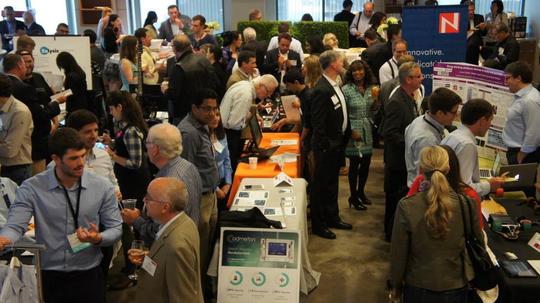
Playing the startup game has its fair share of appeal. Some people see that if they launch a company, they can be their own bosses while letting their creative flags fly. What’s not to like about that?
Reality check: Like with any other game, you can lose. For every unicorn formed, there are countless other startups out there that have failed.
"They have to have an authentic connection to what they’re doing, an intrinsic drive to bring something to the world."
So how do you know if you have what it takes to lead a venture to victory? I consulted MIT Enterprise Forum of Cambridge to get some answers. Speaking with the heads of this organization’s Mentor Smart program - angel investors, successful entrepreneurs and consultants - I got their take on the top qualities of a promising startup.
For the most part, the group unknowingly came to a consensus. Here are the characteristics they highlighted:
Passion:
It’s not a novel idea, but it’s worth mentioning: Startups need to be passionate about their missions. When founders find themselves scraping by and earning next to nothing (or literally nothing), all they may have to fall back on is their inspiration. So they need a lot of it.
Linda Plano, Co-Chair of MITEF Cambridge Mentor Smart and Principal of Plano and Simple, told me, “Founders need to have a passion for what they’re doing. Someone daydreaming about an idea over a beer on weekends isn’t going to go anywhere. Launching a company isn’t a part-time experience. They need to have the passion to make a full commitment."
Personal connection to the problem:
It seems like passion will only get some startups so far. If founders are personally invested in solving a problem, they could have that extra oomph to push their companies to success.
“There’s one thing I always notice and keep in mind when working with founders,” explained Reed Sturtevant, Executive Board Member at MITEF Cambridge and Managing Director at Project 11. “They have to have an authentic connection to what they’re doing, an intrinsic drive to bring something to the world. This is something deeper than 'I want to have a successful business.’ Startups are so hard, so they need more than that. They need an internal drive from a personal connection to the problems they’re trying to solve."
“For instance, look at PillPack's founder,” Sturtevant continued. "His father was a pharmacist, and he grew up in that world. He’s even one himself. That life experience made him think 'how could life be better?’ That’s a prime example of an authentic connection a founder has to solving a specific problem."
Coachability:
Believe it or not, startups - especially those led by entrepreneurial novices - can’t be know-it-alls. While it’s key to believe in your cause, you have to accept you may need to be told what to do.
“I especially like to see founder who have surrounded themselves with (multiple) experienced mentors who have no financial ties to the business,” Katja Wald, Executive Director at MITEF Cambridge, wrote me in an email. "Having this network shows that the founder is open to constructive criticism and feedback…which, at the end of the day, is simply a trait of a good leader.”
“They have to be confident, listen to advice and know how to pick which pieces to follow,” Plano said. "When they hear a consistent message from someone more experienced, but they think they’re smarter, it’s not going to work. Especially when you think of investors, who usually want to have a say and be a part of the process, too."
Tension:
From everything I heard, it looks like the startup space is filled with oxymorons. If you’re launching you’re own venture, be open to feeling a bit bipolar.
“Founders have to be good at living in the ‘AND,’” said Sturtevant. "There’s a lot of ambiguity involved in startups, and they have to be comfortable with 'this AND that.’ So I look for founders who are really tenacious and stubborn - they might think that no one can see what they see - but, at the same time, they're flexible and willing to hear feedback."
“I like to see startup founders with great partnerships,” Sturtevant added. "They can learn how to help each other and learn from each other. Each co-founder can be extremely supportive AND challenging. For example, when one co-founder is being too high and excited, the other can be paranoid and challenging. They keep each other in check.”
“To launch a startup, you need to be an optimist with a healthy dose of realism,” Plano told me. “You need to be stubborn and persistent, but also flexible.”
Logistics:
Almost everyone can come up with an amazing idea. What sets one startup apart from another is the one that delivers the best product.
“Beyond the founding team, there’s the ‘small’ issue of designing a product of service that people actually want AND doing it with a better experience than your competition,” wrote Wald. "So startups that are promising have really done their homework on the market and have created a seamless user experience.”
Sturtevant told me that, “in terms of an idea or company, it has to be a pretty big step forward from what’s already out there. It has to be dramatically better - either the service or product, from a customer perspective, or the business model. It can’t be an incremental change from what’s already in existence.”
“At the same time,” he continued, "the challenge for startups is not only creating a product that’s useful, but also the distribution of that product. People need to be able to find them. So they have to provide an improvement to status quo and also have to think about customer acquisition and distribution for their startup to be successful.”
Photo provided.








